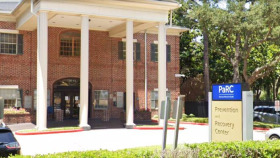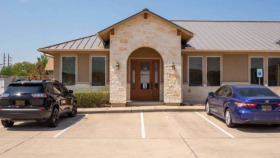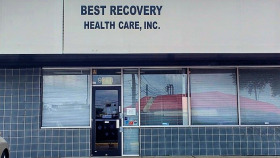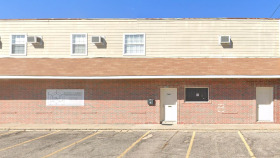Expert Insights
There are undeniable results that come with living in a border state, especially in 2023. With fentanyl pouring across the border in record numbers, you can’t ignore a spike in the number of news stories announcing something like “border agents seize thousands of pounds of deadly fentanyl.” Knowing that our law enforcement agents are doing their job tends to make us feel a lot safer, at least it used to. It’s important to understand just how much fentanyl is being illegally smuggled into the United States at this point. While lives are certainly being saved when agents stop these drugs from finding their way onto the streets, the cartels could lose multiple daily shipments weighing thousands of pounds and never miss a beat.
~ Natalie Baker
Low-Cost and Free Drug Rehab Centers in Houston
Houston offers many low-cost and free options across the city and in Harris County. Some programs can offer free or low-cost care because they receive government funding. Free rehabs are available to low-income individuals and those with no health insurance. The facilities typically require proof of residence in Texas and need some information about your addiction status and proof of income to grant admission.
In addition to choosing a state-funded rehab, there are other ways to help pay to make it more accessible and affordable, including:
- Choosing a treatment center or detox center that offers a sliding scale and payment plans/financing options
- Applying for scholarships and grants
- Applying for grants offered through the Substance Abuse and Mental Health Services Administration (SAMHSA)
- Fundraising and crowdfunding
Does Houston Have a Drug Abuse Problem?
The City of Houston is home to more than 2.3 million people, making it the largest city in the state of Texas and the 4th-largest city in the U.S. According to the Texas Department of State Health Services (DSHS), 883 people in Texas died from fentanyl-related overdoses in 2020. That number climbed to 1,672 deaths in 2021 – an 89% increase. If you or someone you love is abusing substances, professional addiction treatment could be the difference between life and death. There are nearly 75 accredited alcohol and drug rehab centers in Houston and surrounding areas.
In the early 2000s, Houston was named a “High-Intensity Drug Trafficking Area” (HIDTA) due to the high volume of illicit drugs arriving in the city from outside sources. As a result, many Houston residents struggle with addiction to drugs or alcohol.
Here are the stats for drug and alcohol use in Texas:

In 2020, 2,116 people died due to opioid overdose.

8% of Texas residents admit drug use in the last month.

Over 800 deaths are caused by methamphetamine use each year.

2.2% of Texans report having an addiction to at least one illicit drug.
Of HIV cases are caused by intravenous (IV) drug use.
Of adults admit to binge drinking in the last month.
Of adults admit to having alcohol use disorder.
Of all motor vehicle fatalities in Texas are related to alcohol.
Of the many Americans, including Texans, who deal with substance use disorders, only about 10% receive help. It doesn’t have to be this way. If you are looking for addiction treatment, many facilities and detox centers in Houston can provide the quality care you need to live free from addiction.
Important Texas Alcohol and Drug Laws
Texas lawmakers have enacted the following laws regarding substance use:
Texas Good Samaritan Overdose Prevention Statute: This law is designed to encourage Texas residents to seek emergency medical attention during an overdose situation. It protects individuals who call 911 for assistance with a suspected overdose from prosecution for possession of certain controlled substances (if they have not called 911 for an overdose in the preceding 18 months).
Sandra Bland Act: This law provides for rehab for individuals arrested or convicted of non-violent crimes. Per this statute, Texas criminal justice officials must work to identify people with suspected substance use concerns and divert these individuals to an appropriate treatment facility rather than incarcerate them.
Texas Protections for Employees Seeking Addiction Treatment: Under the Family and Medical Leave Act (FMLA), Texas employees who voluntarily seek help for alcohol and drugs may be eligible for time off work. The Americans with Disabilities Act (ADA) also provides some protections for employees who seek addiction treatment.
Marijuana Laws: Texas law is among the strictest in the country regarding marijuana. Recreational use and growth are illegal, and medical use is legal but heavily regulated. Penalties for the use, growth, possession, or sale of marijuana range from 180 days in jail and a $2,000 fine to life imprisonment and a $50,000 fine.
Resources
- Texas Health and Human Services. (January 2020). Addressing Substance Use in Texas PUBLIC HEALTH AGENCY ACTION PLAN.
- Kaiser Family Foundation. (2022). Mental Health in Texas.
- National Library of Medicine. (April 2022). Opiate and Opioid Withdrawal.
- Substance Abuse and Mental Health Services Administration. (2022). MAT Medications, Counseling, and Related Conditions.






















